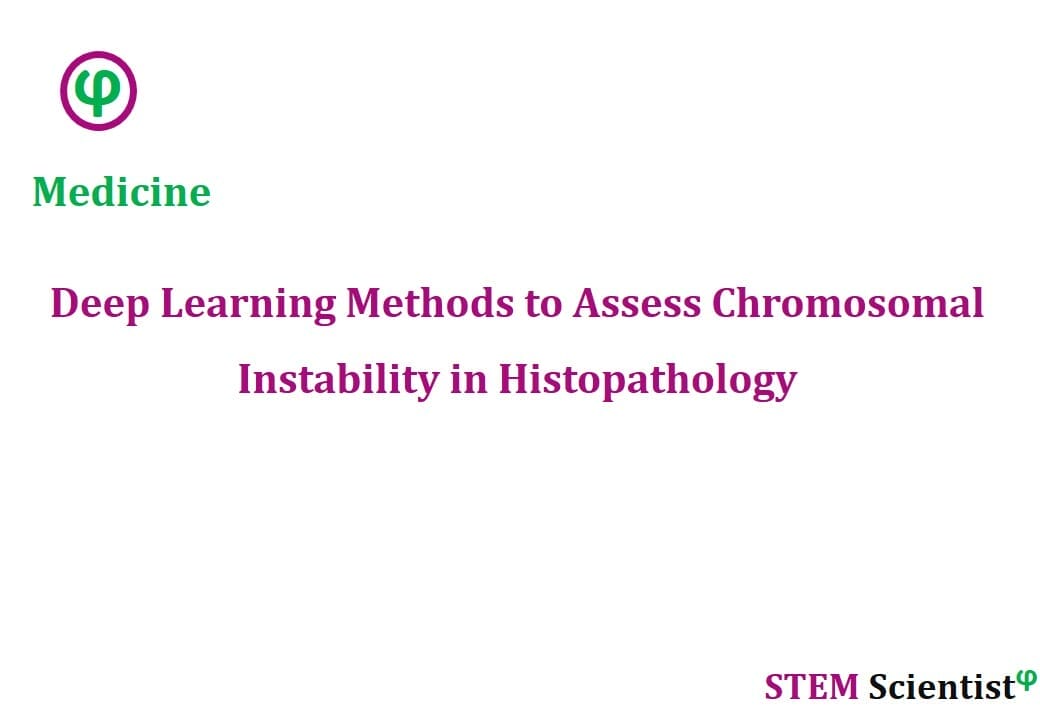
The following study was conducted by Scientists from Caryl and Israel Englander Institute for Precision Medicine, Weill Cornell Medicine, New York, USA; Pathology and Laboratory Medicine, Weill Cornell Medicine, New York, USA; Caryl and Israel Englander Institute for Precision Medicine, Weill Cornell Medicine, New York, USA; Caryl and Israel Englander Institute for Precision Medicine, Weill Cornell Medicine, New York, USA;Human Oncology and Pathogenesis Program, Memorial Sloan Kettering Cancer Center, New York, USA; Department of Radiation Oncology, Memorial Sloan Kettering Cancer Center, New York, USA; Computational Oncology, Department of Epidemiology and Biostatistics, Memorial Sloan Kettering Cancer Center, New York, USA. Study is published in iScience Journal – Cell Press Publishing as detailed below.
iScience Journal – Cell Press Publishing (2021)
Deep Learning Predicts Chromosomal Instability from Histopathology Images
Highlights
- Deep learning model accurately predicts CIN from histopathology slides
- There is evidence for CIN intra-tumor heterogeneity with prognostic value
- CIN is associated with profound transcriptional changes including mitotic pathways
- Results pave the way for using CIN as a prognosis biomarker
Summary
Chromosomal instability (CIN) is a hallmark of human cancer yet not readily testable for patients with cancer in routine clinical setting. In this study, we sought to explore whether CIN status can be predicted using ubiquitously available hematoxylin and eosin histology through a deep learning-based model. When applied to a cohort of 1,010 patients with breast cancer (Training set: n = 858, Test set: n = 152) from The Cancer Genome Atlas where 485 patients have high CIN status, our model accurately classified CIN status, achieving an area under the curve of 0.822 with 81.2% sensitivity and 68.7% specificity in the test set. Patch-level predictions of CIN status suggested intra-tumor heterogeneity within slides. Moreover, presence of patches with high predicted CIN score within an entire slide was more predictive of clinical outcome than the average CIN score of the slide, thus underscoring the clinical importance of intra-tumor heterogeneity.
Source:
iScience Journal – Cell Press Publishing (2021)
URL: https://www.cell.com/iscience/fulltext/S2589-0042(21)00362-X
Citation:
Xu, Z., Verma, A., Naveed, U., Bakhoum, S.F., Khosravi, P., Elemento, O., 2021. Deep learning predicts chromosomal instability from histopathology images. iScience 24(5).


